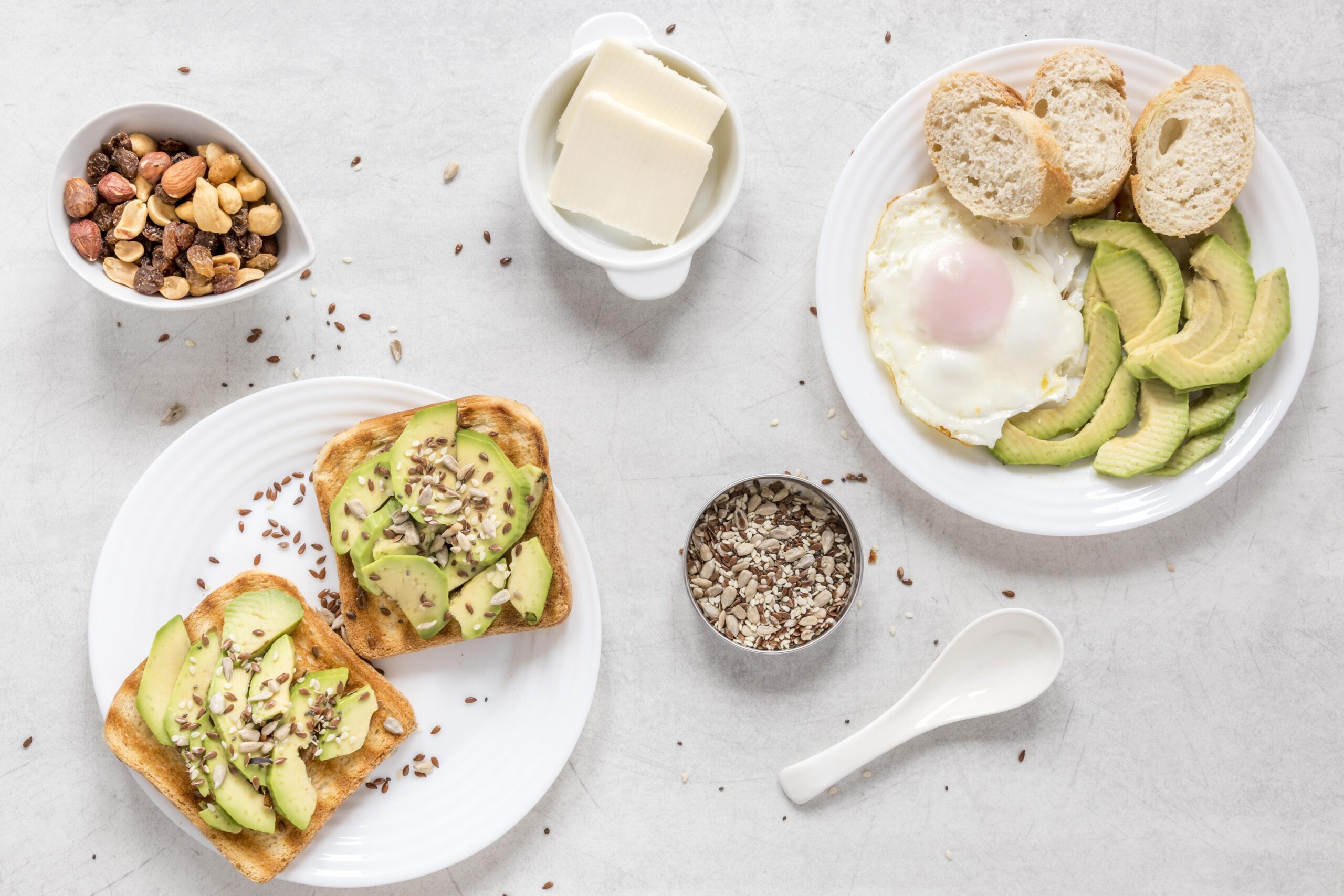A consistent self-care routine improves your quality of life by fostering a sense of balance and fulfillment. It helps you stay grounded and focused, allowing you to tackle daily challenges with a clear mind and a healthy body. Establishing a self-care routine is crucial in preventing burnout, which can result from prolonged stress and overwork. Regular self-care practices help mitigate stress, ensuring you maintain your well-being and productivity over the long term.
Morning Self-care Routine

Gentle Wake-up Activities
Starting your day with gentle wake-up activities sets a positive tone and prepares your body and mind for the day ahead. These activities help ease you into wakefulness, reduce morning stiffness, and boost your energy levels.
Examples:
-
Stretching: Engage in a 5-10 minute stretching routine to wake up your muscles and improve circulation. Focus on gentle stretches that target major muscle groups.
-
Light Yoga: Practicing a short sequence of yoga poses can enhance flexibility, strength, and mental clarity. Cat-Cow, Downward Dog, and Child’s Pose are excellent for a morning routine.
-
Deep Breathing Exercises: Incorporate deep breathing exercises, such as diaphragmatic breathing or the 4-7-8 technique, to reduce stress and increase oxygen flow to your brain.
Healthy Breakfast

Breakfast is often considered the most important meal of the day, as it provides the necessary nutrients and energy to kick-start your metabolism and sustain you throughout the morning. A healthy breakfast helps maintain stable blood sugar levels, improves concentration, and boosts overall productivity.
Examples:
-
Smoothie Recipes: Create nutrient-dense smoothies using fruits, vegetables, protein sources (like Greek yogurt or protein powder), and healthy fats (such as avocado or chia seeds). For example, a green smoothie with spinach, banana, almond milk, and a scoop of protein powder.
-
Oatmeal Variations: Oatmeal is a versatile and nutritious breakfast option. Enhance its nutritional value by adding toppings like fresh berries, nuts, seeds, and a drizzle of honey. Example: Overnight oats with chia seeds, blueberries, and almond butter.
Mindfulness Practice
Mindfulness practices in your morning routine help set a calm and focused mindset. They promote mental clarity, reduce stress, and enhance overall emotional well-being.
Examples:
-
Morning Meditation: Spend 5-10 minutes to center your mind and body. Focus on your breath, use a guided meditation app, or practice mindful observation of your surroundings.
-
Journaling: Start your day by journaling your thoughts, goals, and intentions. This practice can help you process emotions, clarify priorities, and cultivate a positive mindset.
-
Gratitude Practice: Take a few moments to reflect on and write down things you are grateful for. This simple practice can shift your focus to the positive aspects of your life, fostering a sense of contentment and happiness.
Incorporating these self-care activities into your morning routine sets a solid foundation for a balanced and productive day and enhances your overall well-being.
Workday Self-care Routine
Work Breaks and Physical Activity
Regular breaks throughout your workday are essential for maintaining productivity and reducing stress. Breaks prevent burnout, reduce eye strain from prolonged screen time, and help keep your energy levels steady.
Examples:
-
Short Walks: Step outside for a 5-10 minute walk to clear your mind and get some fresh air. This can improve focus and reduce mental fatigue.
-
Desk Stretches: Perform simple stretches at your desk to alleviate neck, shoulders, and back tension. Examples include neck rolls, shoulder shrugs, and seated spinal twists.
-
Quick Exercise Routines: Incorporate short exercise routines, such as jumping jacks, squats, or push-ups, to boost energy and enhance circulation.
Hydration and Nutrition
Staying hydrated is crucial for maintaining energy levels, concentration, and overall health. Dehydration can lead to fatigue, headaches, and decreased cognitive function.
Examples:
-
Healthy Snacks: To maintain energy levels, keep a supply of nutritious snacks at your desk. Examples include fresh fruit, nuts, yogurt, and vegetable sticks with hummus.
-
Herbal Teas: Sip on herbal teas like chamomile, peppermint, or green tea, which can provide hydration and offer additional health benefits such as relaxation or antioxidant properties.
Mental Health Practices
Implementing mental health practices throughout your workday can help manage stress, enhance focus, and maintain a positive outlook.
Examples:
-
Deep Breathing Exercises: To reduce stress and calm your mind, practice deep breathing exercises, such as box breathing or the 4-7-8 technique.
-
Listening to Calming Music: Play calming or natural sounds in the background to create a peaceful work environment. This can help you stay focused and relaxed.
-
Mindfulness Breaks: Take a few moments to practice mindfulness, focusing on the present moment without judgment. This can help you reset and approach tasks with renewed clarity.
Evening Self-care Routine
Winding Down Activities
Establishing a clear boundary between work and personal time is essential for mental well-being. Engaging in relaxing activities helps you unwind, reduces stress, and prepares you for restful sleep.
Examples:
-
Reading: Spend time reading a book or magazine to relax and shift your focus away from work-related thoughts.
-
Listening to Music: Listen to your favorite music or soothing sounds to create a calming atmosphere and enhance your mood.
-
Taking a Bath: Enjoy a warm bath with Epsom salts or essential oils to relax your muscles and unwind mentally.
Healthy Dinner
A nutritious dinner supports overall health, aids recovery from the day’s activities, and prepares your body for a good night’s sleep.
Examples:
-
Easy, Nutritious Dinner Recipes: Prepare balanced meals that include lean proteins, healthy fats, and a variety of vegetables. Examples include grilled chicken with quinoa and steamed vegetables, a hearty vegetable soup, or a salmon salad with mixed greens.
Preparing for Restful Sleep
Establishing a bedtime routine and practicing good sleep hygiene is crucial for restful and rejuvenating sleep. Quality sleep is essential for physical health, cognitive function, and emotional well-being.
Examples:
-
Setting a Bedtime Routine: Create a consistent bedtime routine that signals to your body it’s time to wind down. This could include dimming the lights, reading a book, or listening to calming music.
-
Reducing Screen Time: Limit exposure to screens (phones, tablets, computers) at least an hour before bed to reduce blue light interference with your sleep cycle.
-
Meditation: Practice a short meditation or deep breathing exercise before bed to calm your mind and prepare for restful sleep.
Incorporating these self-care activities into your workday and evening routines allows you to maintain a balanced and healthy lifestyle, improve your productivity, and enhance your overall well-being.
Weekly Self-care Routine
Physical Self-care
Physical self-care involves activities that improve your physical health and well-being, providing immediate and long-term benefits.
Examples:
-
Exercise Classes: Join a weekly exercise class you enjoy, such as yoga, pilates, spin, or dance. Regular physical activity boosts energy, improves mood, and enhances overall fitness.
-
Outdoor Activities: Spend time outdoors engaging in activities like hiking, cycling, or walking in nature. Fresh air and natural surroundings can refresh your mind and body.
-
Spa Treatments: Treat yourself to a spa day or a massage to relax your muscles and rejuvenate your body. Regular spa treatments can alleviate stress and promote a sense of well-being.
Emotional Self-care
Emotional self-care focuses on nurturing your emotional health, helping you manage emotions, and building resilience.
Examples:
-
Therapy Sessions: Schedule regular sessions with a therapist or counselor to discuss and process your emotions, gain insights, and develop coping strategies.
-
Connecting with Loved Ones: Spend quality time with friends and family members. Building and maintaining strong relationships provides emotional support and a sense of belonging.
-
Pursuing Hobbies: Engage in activities you love, whether painting, gardening, cooking, or playing an instrument. Hobbies provide joy, relaxation, and an outlet for self-expression.
Mental Self-care
Mental self-care involves stimulating your mind, enhancing cognitive function, and promoting mental clarity.
Examples:
-
Learning New Skills: Take a class or online course to learn something new, whether a language, a musical instrument, or a professional skill. Continuous learning keeps your mind sharp and engaged.
-
Engaging in Creative Activities: Participate in creative pursuits like writing, drawing, or crafting. Creativity boosts mental health by providing a way to express thoughts and emotions.
-
Practicing Mindfulness: Incorporate mindfulness practices such as meditation, deep breathing, or mindful walking. Mindfulness helps reduce stress, improve focus, and promote mental clarity.
Self-care for Special Circumstances
Self-care During Illness
When you’re ill, self-care focuses on rest and recovery to support your body’s healing process.
Examples:
-
Gentle Activities: Engage in gentle activities like reading, listening to music, or watching a movie. Avoid strenuous activities and give your body the rest it needs.
-
Nutritious Meals: Consume nutritious, easy-to-digest meals to support your immune system. Include foods rich in vitamins and minerals, such as soups, smoothies, and herbal teas.
-
Hydration: Drink plenty of water, herbal teas, and clear broths. Proper hydration helps your body recover faster.
Self-care During Stressful Times
Self-care is essential for managing stress and maintaining well-being during stressful periods.
Examples:
-
Relaxation Techniques: Practice relaxation techniques such as progressive muscle relaxation, guided imagery, or aromatherapy. These methods help reduce stress and promote a sense of calm.
-
Support Networks: Reach out to friends, family, or support groups for emotional support and advice. Talking to others can provide comfort and perspective.
-
Professional Help: If stress becomes overwhelming, consider seeking help from a mental health professional. Therapy or counseling can offer valuable strategies for coping with stress.
Self-care During Travel
Traveling can disrupt your regular self-care routine, but you can continue to prioritize self-care with some adjustments.
Examples:
-
Portable Self-care Practices: Bring travel-friendly self-care items, such as a journal, a small meditation cushion, or essential oils. These items can help you maintain your routine wherever you are.
-
Staying Active: Find ways to stay active while traveling, such as walking tours, hotel gyms, or yoga in your room. Physical activity helps combat travel fatigue and boosts energy.
-
Balanced Diet: Make mindful food choices while traveling. Opt for balanced meals and snacks that provide sustained energy, and stay hydrated by drinking plenty of water.
By incorporating these self-care activities into your weekly routine and adapting them for special circumstances, you can maintain a balanced and healthy lifestyle, ensuring that your physical, emotional, and mental well-being are consistently supported.
Creating a Personalized Self-care Plan
Evaluate different aspects of your life to identify areas that need more attention. Use self-assessment questionnaires or reflection exercises to determine where to enhance your self-care practices. Set specific, measurable, achievable, relevant, and time-bound (SMART) goals for your self-care routine. For example, aim to meditate for 10 minutes every morning or take a 30-minute walk thrice weekly. Keep a self-care journal or use apps to track your activities and progress. Review and adjust your routine based on what works best for you and how your needs evolve.
A well-rounded self-care routine is essential for maintaining balance, preventing burnout, and enhancing overall well-being. By prioritizing self-care, you invest in your physical, mental, and emotional health. Encourage yourself to view self-care not as a luxury but as a necessary practice for a healthy and fulfilling life. Be kind to yourself and allow for flexibility in your routine. Continuously explore and integrate new self-care practices to keep your routine engaging and effective.
Conclusion
A consistent self-care routine is essential for maintaining balance, preventing burnout, and enhancing overall well-being. By prioritizing self-care, you invest in your physical, mental, and emotional health. Encourage yourself to view self-care not as a luxury but as a necessary practice for a healthy and fulfilling life. Embrace self-care as a vital aspect of your overall wellness strategy. Be kind to yourself and allow for flexibility in your routine. Understand that some days may be more challenging than others, and that’s okay. Adjust your self-care activities as needed without feeling guilty. Keep your self-care routine dynamic by exploring new activities and practices. Experiment with different techniques to find what works best for you and integrate them into your routine to keep it engaging and effective.
By following this personalized self-care plan, you can ensure that you consistently nurture your well-being and live a balanced, fulfilling life.
